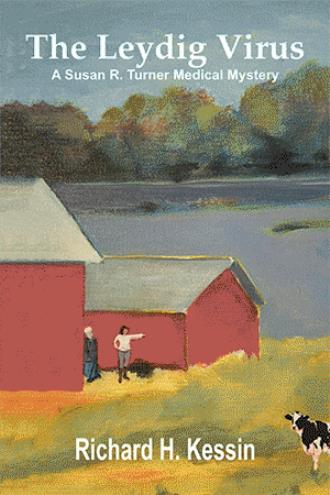
Columns are one thing, but to really understand how science is done needs a story. Writing NIH grant proposals or scientific papers is a limited business. Too much subject, verb, and predicate. There is no dialogue. Font requirements and margin widths are dictated. We learn about people from a standard resume form. Scientific papers can be well or badly written, and that is important. But frankly, all that restraint gets on my nerves.
So, I wrote a novel called The Leydig Virus.
Two Women and a Virus
This is the story of two women, Susan and Anna, who have little in common. One is a scientist who studies dangerous viruses in Boston. The other is a mother and wife in an Amish dairy farming community in upstate New York.
When a virus affects the Amish farmers; it does not kill or even make its victims very sick. Its distinguishing feature is that it attacks and kills human Leydig cells, which only men have. Leydig cells make testosterone, and their loss has consequences, male infertility being one, loss of libido another. Like Covid, the virus is very contagious and spreads, affecting all aspects of society.
The story is about the discovery and analysis of the virus, and the young scientists who do it. The story eventually brings the two women together. There are consequences—personal and professional—for Anna and Susan and their families. They meet, two stressed and exhausted people, and help restore each other. The way to deal with the virus is revealed.
Richard H. Kessin, PhD is Emeritus Professor of Pathology and Cell Biology at Columbia University Irving Medical Center. The National Institutes of Health supported his research in microbiology for many years. During that time, he taught many Ph.D and medical students. For a while he was the Dean of the PhD students. This is their story.
Order The Leydig Virus from AuthorHouse or from Amazon.